CROSSWORD & PUZZLES
Boost Your Brain: The Benefits of Daily Commuter Crossword Puzzles
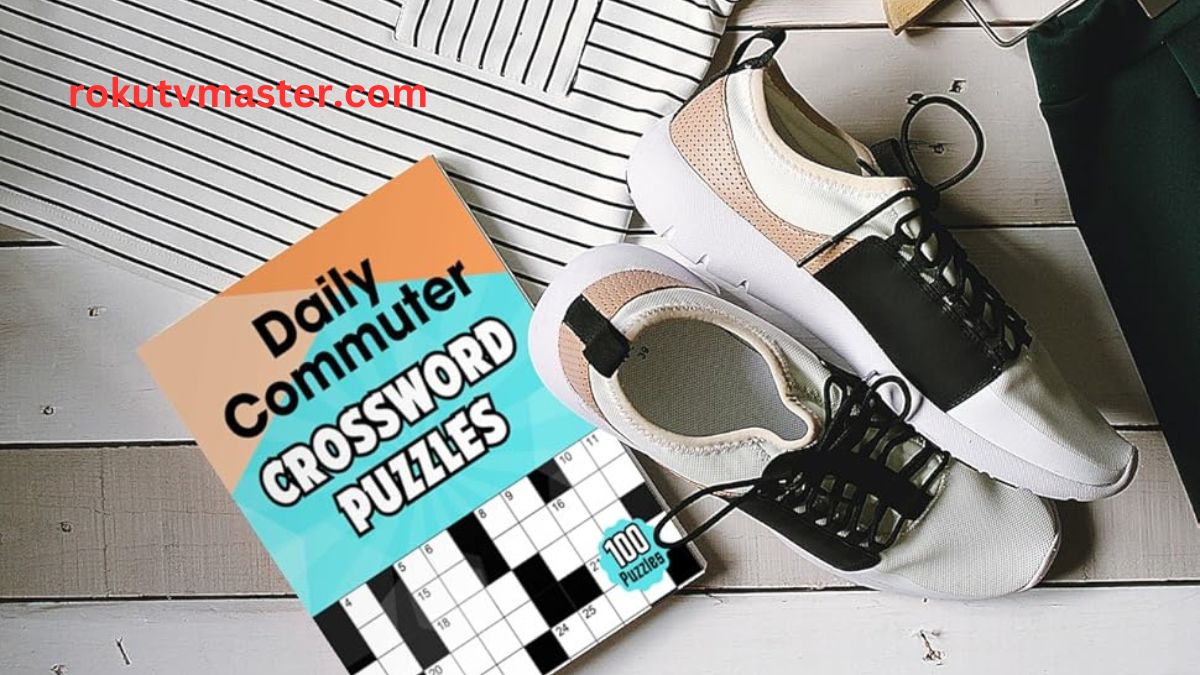
Crossword puzzles have long been a favorite pastime for many, often found in newspapers or enjoyed on mobile apps. They’re more than just a fun way to pass the time; these grids of words and clues hold incredible benefits for your brain. Imagine transforming your daily commute into an opportunity not just to travel, but also to sharpen your cognitive skills while boosting your mood. The beauty of daily commuter crossword puzzles is that they fit seamlessly into our busy lives. Whether you are on a train, bus, or even carpooling with friends, dedicating those few moments to solve clues can stimulate mental agility and promote creativity. It’s like giving your mind a workout—one filled with intrigue and satisfaction as each word falls perfectly into place.
So why not dive deeper? Discover how incorporating this engaging activity into your routine can enhance memory retention and critical thinking skills—all while making that mundane commute something you actually look forward to!
The Science Behind Crossword Puzzles and Brain Health
Crossword puzzles have long been celebrated as a fun pastime, but their impact on brain health is backed by science. Engaging in these word challenges stimulates various areas of the brain, enhancing cognitive functions.
Research shows that solving daily commuter crossword puzzles can improve memory and problem-solving skills. The mental effort required to decipher clues activates neurons, fostering connections between them. This process is crucial for maintaining cognitive flexibility.
Furthermore, studies indicate that regular puzzle solvers may experience delayed onset of dementia symptoms. Keeping your mind active with crosswords encourages neuroplasticity—the brain’s ability to adapt and grow throughout life.
By constantly challenging yourself with new words and concepts, you strengthen your mental agility. This not only sharpens existing abilities but also prepares your mind for future learning opportunities.
Benefits of Solving Daily Commuter Crossword Puzzles
Daily commuter crossword puzzles serve as a fantastic brain workout. They engage your mind during those often monotonous travel times, turning idle moments into productive sessions.
These puzzles enhance vocabulary and improve language skills. As you encounter new words, your mental lexicon expands, making communication more effective.
Additionally, solving crosswords sharpens problem-solving abilities. Each clue presents a mini-challenge that requires critical thinking and creativity to unravel.
Moreover, they boost memory retention. Regular engagement with these puzzles trains the brain to recall information quicker and more efficiently over time.
Completing a crossword provides a sense of accomplishment. That small win can elevate your mood as you start or end your day on a positive note.
Tips for Solving Crossword Puzzles Efficiently
Start with the clues you know. Fill in those answers to create a solid foundation. This will help you see connections and patterns more clearly.
Don’t get stuck on one word. If a clue feels elusive, skip it for now and return later. Fresh eyes can lead to new insights.
Consider the theme of the crossword puzzle if there is one. Many puzzles have an overarching topic that provides hints about certain answers.
Use pencil or erasable ink if you’re working on paper. Mistakes happen, and it’s easier to adjust without leaving messy marks behind.
Practice regularly. Just like any skill, solving crosswords gets easier over time as your vocabulary expands and your problem-solving skills sharpen. Enjoy the process!
Other Brain-Boosting Activities to Try
Exploring different brain-boosting activities can add variety to your mental workout routine. Consider trying puzzles like Sudoku or logic games, which challenge numerical and analytical skills.
Reading regularly is another excellent way to stimulate the mind. It improves vocabulary, comprehension, and critical thinking. Choose fiction for imaginative engagement or non-fiction for knowledge expansion.
Meditation also deserves a mention. It enhances focus and reduces stress, allowing you to approach daily tasks with clarity.
Physical exercise shouldn’t be overlooked either; it increases blood flow to the brain while releasing endorphins that enhance mood and cognitive function.
Learning a new skill—be it cooking or playing an instrument—is an exciting way to keep your mind sharp while enjoying something creative. Each of these activities complements daily commuter crossword puzzles beautifully in developing mental agility.
Conclusion: Make Daily Commuter Crosswords a Part of Your Routine
Daily commuter crossword puzzles offer more than just a way to pass the time during your travels. They provide an opportunity to engage your brain and sharpen your cognitive skill. By incorporating these puzzles into your daily routine, you can enjoy numerous mental benefits while also making the most of those travel moments.
Start small if you’re new to crosswords. Dedicate a few minutes each day as part of your commute, gradually increasing the difficulty as you become more comfortable with them. This simple habit not only enhances mental agility but can also serve as a delightful escape from the hustle and bustle of daily life.
Embrace this engaging challenge, unleash your creativity with words, and watch how it transforms dull commuting hours into productive brain workouts. Make daily commuter crossword puzzles an essential part of your journey toward improved focus and cognitive health—your mind will thank you for it!
CROSSWORD & PUZZLES
Behind Closed Doors: The Significance of Vault Openers in NYT Crossword Culture
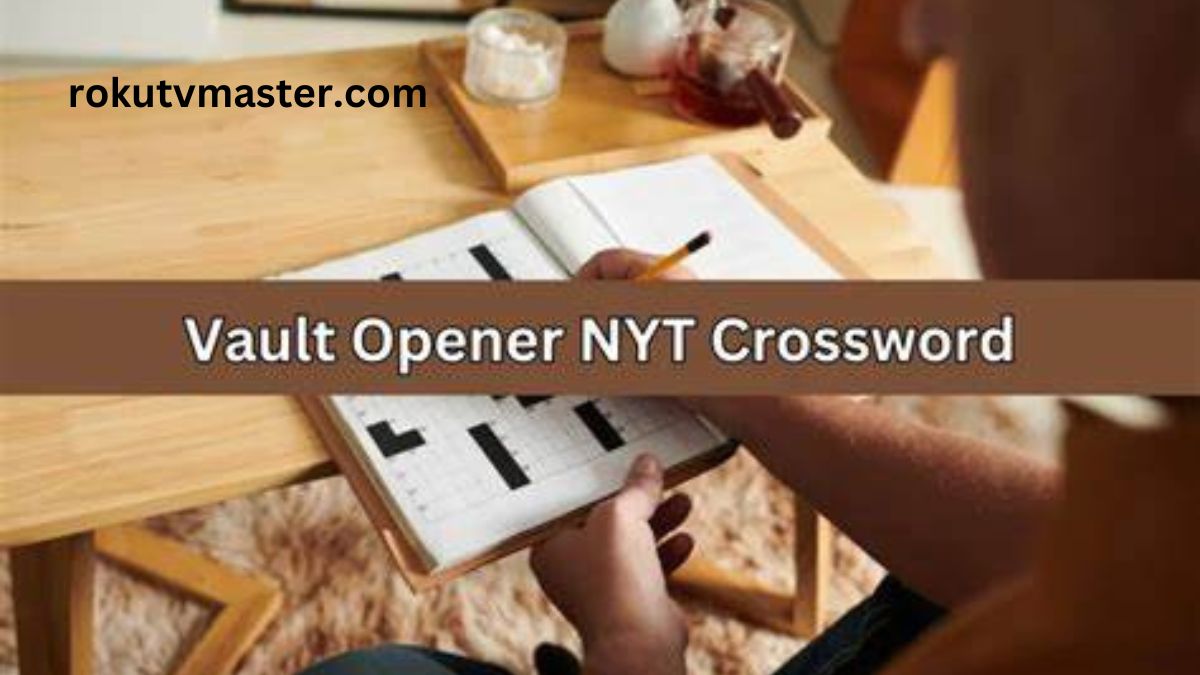
But within this world lies a fascinating element known as vault openers—those clever clues that unlock more than just answers. They add layers of complexity and surprise to the New York Times crossword experience. As you navigate grids filled with letters and words, it’s worth delving deeper into what makes these unique entries so significant to puzzle enthusiasts everywhere. Buckle up; we’re about to explore the intricate role of vault openers in NYT crossword culture!
The role of vault openers in NYT crossword puzzles
Vault openers serve as the gateway to a more complex world within NYT crossword puzzles. They are not your average clues; they unlock a deeper layer of engagement for solvers.
These unique prompts often hint at a significant theme or concept that connects multiple answers. Solving them can feel like deciphering an enigma, setting the stage for the entire puzzle.
Think of vault openers as keys. They allow solvers to approach the grid with curiosity and excitement, ready to discover what lies beneath each clue’s surface.
They create moments of revelation, transforming a simple pastime into an intellectual adventure. The thrill comes from piecing together disparate elements into one cohesive narrative.
In essence, these clever hints elevate the experience. They invite players to think critically and creatively while navigating through clever wordplay and intricate connections in their journey toward completion.
What is a vault opener and how is it different from a regular clue?
A vault opener is a special type of clue found in crossword puzzles, particularly in the New York Times. It serves as an invitation to explore deeper layers of wordplay and references.
Unlike regular clues that might hint at straightforward answers, vault openers are designed to challenge solvers. They often require lateral thinking or knowledge of specific pop culture artifacts.
For example, a typical clue could ask for a synonym or definition while a vault opener may reference something obscure. This element adds excitement and complexity to the solving experience.
Vault openers can also reveal themes within the puzzle itself. They are like keys unlocking hidden treasures waiting to be discovered by eager puzzlers ready for adventure in their grids.
Famous examples of vault openers in NYT crosswords
Vault openers have left a lasting impression on the NYT crossword scene, often revealing clever twists. One standout example is “Word that comes before ‘you’ in a famous song,” leading solvers to the catchy phrase “I Want.”
Another memorable vault opener was, “A tree with roots but no fruit.” This clue beckoned puzzle enthusiasts toward the unexpected answer of “family,” showcasing how wordplay can surprise even seasoned players.
The artistry doesn’t stop there. In one instance, an intriguing vault opener asked for “Something you might give your enemy.” The answer? “Advice”—a playful nod to irony that resonates deeply within crossword culture.
These examples highlight not just creativity but also the thrill derived from cracking these challenging clues. Each vault opener serves as a unique key, unlocking layers of meaning and enjoyment for avid puzzlers everywhere.
Controversies surrounding the use of vault openers
Vault openers spark debate among crossword enthusiasts. Some argue they disrupt the flow of solving, introducing unexpected challenges that can frustrate players.
Critics often highlight their obscure references or niche knowledge required to decipher them. This exclusivity can alienate casual solvers who might find themselves stumped by a clue that requires specialized knowledge.
On the other side, advocates defend vault openers as an art form within puzzles, elevating the experience and adding layers of complexity. They appreciate how these clues push boundaries and encourage deeper thinking.
However, debates frequently arise about balance. Should puzzles remain accessible to everyone? Or is it acceptable to cater to a select group of hardcore fans? The tension between inclusivity and sophistication remains palpable in discussions surrounding vault openers.
The impact of vault openers on the crossword community
Vault openers have transformed the landscape of crossword puzzles, sparking both intrigue and debate among enthusiasts. These clues draw players deeper into the puzzle’s narrative, creating an engaging experience that goes beyond mere wordplay.
Their unique structure often requires a shift in thinking, pushing solvers to explore unconventional paths. This challenge fosters creativity and collaboration within the community as puzzlers share strategies and insights into cracking these enigmatic codes.
Moreover, vault openers encourage a sense of camaraderie. Fans gather online to discuss their experiences with particularly tricky ones or exchange tips on tackling future challenges.
As a result, they cultivate an inclusive environment where seasoned veterans can mentor newcomers while exchanging solutions across forums and social media platforms. The thrill of uncovering a well-crafted vault opener adds excitement that resonates throughout puzzle circles far beyond the grid itself.
Conclusion:
The future of vault openers in NYT crosswords appears promising. As puzzle enthusiasts continue to seek innovation and creativity, these unique clues have carved out their niche. They challenge solvers while offering a sense of triumph when deciphered.
With the rise of digital platforms, more people are engaging with crossword puzzles than ever before. This influx could lead to an increase in demand for inventive approaches like vault openers. The New York Times has always been at the forefront of crossword innovation, so it’s likely they will keep experimenting with this format.
However, as trends evolve within the puzzle community, maintaining balance is key. While vault openers add excitement, they must not overshadow traditional clues that many solvers cherish. A blend of both might be the answer moving forward.
Crossword culture thrives on change and adaptation while honoring its roots. Vault openers embody this spirit perfectly—refreshing yet grounded in tradition. As we look ahead, it’s clear that these clever hints will remain an integral part of the ever-evolving landscape of crosswords for years to come.
CROSSWORD & PUZZLES
A Guide to Mastering the Grains Unit 5 Crossword Puzzle

Crossword puzzles have long been a beloved pastime for many, offering both a challenge and a delightful escape. As you sit down with a pencil in one hand and the Grains Unit 5 Crossword Puzzle in front of you, you’re not just engaging your brain; you’re diving into an enjoyable world of words and clues. Whether you’re a seasoned solver or new to the game, this puzzle provides an excellent opportunity to enhance your vocabulary while having fun. Ready to sharpen those pencils? Let’s explore what makes crossword puzzles not just entertaining but also beneficial for your mind!
Benefits of Solving Crossword Puzzles
Crossword puzzles offer a multitude of benefits that go beyond mere entertainment. Engaging with these word games can boost cognitive functions significantly. Regular puzzle solvers often experience improved memory and enhanced problem-solving skills.
The act of filling in the boxes encourages critical thinking and promotes mental agility. As you decipher clues, your brain works to make connections between words and ideas, sharpening your linguistic abilities.
Moreover, working on crossword puzzles can be a great stress reliever. Taking time to focus on something enjoyable allows for a mental break from daily pressures.
Socially, they can also foster connections. Whether collaborating with friends or joining a community of enthusiasts online, sharing strategies enriches the experience further.
Understanding the Grains Unit 5 Crossword Puzzle
The Grains Unit 5 Crossword Puzzle is designed to test your knowledge of grain-related terms and concepts. This puzzle covers various topics, including types of grains, their uses, and nutritional benefits.
As you dive into the grid, you’ll encounter clues that challenge your understanding. Some may reference specific grains like quinoa or barley, while others might highlight cooking methods or health benefits associated with these foods.
Understanding the context of each clue is crucial. Familiarity with common grain vocabulary will give you a significant advantage in unlocking answers.
Take note of any patterns that emerge as you fill in letters. Sometimes, completing one section can provide hints for other intersecting words. The thrill lies not just in solving but also in learning more about grains along the way!
Tips for Solving the Puzzle
When tackling the Grains Unit 5 Crossword Puzzle, start with the easiest clues. They often provide crucial letters for more challenging ones.
Look for common prefixes and suffixes related to grains. Words like “grainy” or “harvest” might pop up frequently.
Don’t hesitate to pencil in guesses. Many times, a hunch can lead you to fill out adjacent boxes that clarify other answers.
Use online dictionaries or grain-related resources if you’re stuck on specific terms. A quick search can bring useful insights into vocabulary you may not know yet.
Taking breaks is essential too. Stepping away from the puzzle allows your brain to reset and approach it with fresh eyes later on.
Collaborate with friends or family members who share an interest in puzzles. Two heads are better than one when it comes to cracking those tricky clues!
Commonly Used Grains Vocabulary
When diving into the Grains Unit 5 Crossword Puzzle, it’s essential to familiarize yourself with some commonly used terms. These words can unlock many of the puzzle’s clues.
First up is “cereal.” This refers not just to breakfast food but also encompasses grains like wheat and rice. Another important term is “barley,” a versatile grain often found in soups and beers.
“Quinoa” has gained popularity for its health benefits. It’s packed with protein and makes an excellent addition to salads or bowls.
Don’t overlook “oats,” either! They are perfect for a hearty breakfast and come in various forms, from rolled oats to steel-cut varieties.
Remember the word “gluten.” It’s crucial for baking bread but can pose challenges for those with sensitivities. Knowing these terms will help you crack those tricky crossword clues more easily!
Strategies for Finding Clues and Filling in Answers
Start by scanning the entire puzzle. Look for clues that seem familiar or those with fewer letters, as they often provide anchors for filling in other answers.
Focus on the intersecting words. If you have a letter filled in from a horizontal clue, see how it fits into vertical ones. This can help jog your memory and reveal more solutions.
Don’t hesitate to pencil in tentative answers. They can spark new insights without committing you to incorrect choices right away.
Use online resources sparingly if you’re stuck. Sometimes a quick search can lead to inspiration rather than outright answers.
Trust your instincts. Crossword puzzles are as much about intuition as they are about knowledge. Keep an open mind and enjoy the process of discovery.
Conclusion: Keep Practicing and Enjoy the Rewards of Solving the Puzzle!
Crossword puzzles like the Grains Unit 5 Crossword Puzzle offer a delightful challenge. They engage your mind and foster creativity.
As you continue to practice, you’ll notice improvement in both speed and accuracy. Each solved puzzle builds confidence, making the next one even more enjoyable.
Remember, it’s all about enjoying the process. Celebrate small victories when you fill in those tricky squares or uncover a clever clue.
Over time, not only will your vocabulary expand, but so will your problem-solving skills. Embrace each puzzle as an opportunity for growth and fun.
So grab that pencil or pen, find a cozy spot, and dive back into the world of crosswords. You’ll soon discover that every moment spent solving brings its own set of rewards!
FAQs
Crossword puzzles have become a beloved pastime for many, and the Grains Unit 5 Crossword Puzzle is an excellent example of how engaging these brain teasers can be. As you practice solving them, you’ll find that your vocabulary expands and your problem-solving skills sharpen.
Here are some frequently asked questions to help you further:
What materials do I need to solve a crossword puzzle?
All you really need is a pencil or pen and the crossword grid. Using an eraser can also be helpful if you’re working with a pencil.
How long does it typically take to complete the Grains Unit 5 Crossword Puzzle?
The time varies from person to person, but most people can finish in about 20-30 minutes once they grasp the key terms related to grains.
Are there any apps or websites specifically for practicing crosswords?
Yes! Many platforms offer daily crosswords, including specialized sections on topics like grains. Look out for dedicated educational apps as well.
Can I create my own crossword puzzle focused on grains?
Absolutely! There are online tools that allow you to design custom puzzles based on specific themes or subjects.
How often should I practice solving crosswords for improvement?
Consistency is key. Aim for at least two or three sessions per week to see noticeable improvements over time.
Keep exploring these resources and enjoy every moment spent unraveling those clues. Happy puzzling!
CROSSWORD & PUZZLES
Vault Opener NYT Crossword: An Informative Guide
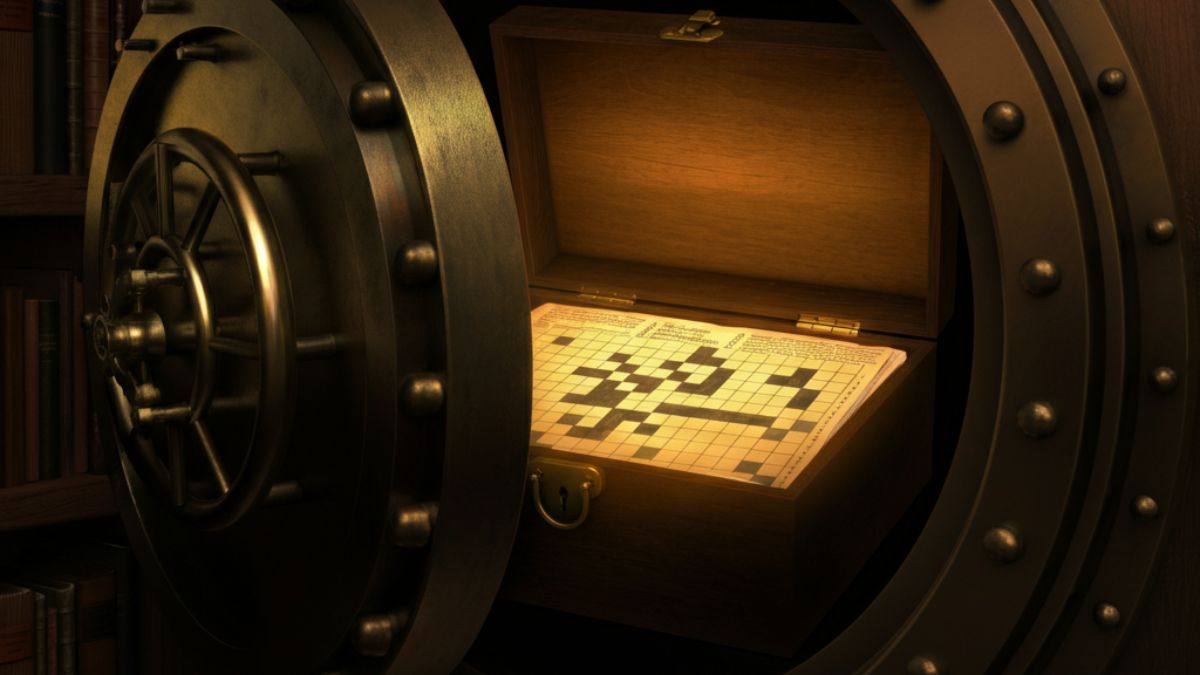
You’re not alone if you’ve encountered the phrase “Vault Opener NYT Crossword” while solving the New York Times (NYT) crossword puzzle. This clue has puzzled and intrigued many crossword enthusiasts. But what exactly does it mean, and how can you decipher it efficiently?
Whether you’re a seasoned crossword solver or a curious beginner, this guide will illuminate everything you need to know about “Vault Opener.” By the time you’re done reading, you’ll have a better understanding of how to approach similar clues and improve your crossword-solving skills.
What Does “Vault Opener NYT Crossword” Mean in the NYT Crossword?
The New York Times crossword is widely loved for its clever wordplay and diverse clues across all themes. “Vault Opener NYT Crossword,” like many other cryptic crossword clues, often relies on your ability to think beyond the literal meaning of words. Instead of referencing something as straightforward as a key or combination lock, this clue might describe something more figurative.
For example, “Vault Opener” could:
- Refer to something that metaphorically causes a vault (a leap or a surge) to happen.
- Be a pun, hinting at a physical movement or action, such as a leap in gymnastics.
- Represent a letter, word, or term that opens or begins another object or concept.
It’s understanding these dual meanings that makes crossword solving such a thrilling mental exercise!
Examples of “Vault Opener” in Crosswords
To better illustrate how this clue might appear and be solved in crosswords, consider the following potential examples:
Example 1
- Clue: Vault opener
- Answer: POLE
- Explanation: This refers to a “pole vault,” a sporting event where athletes use a pole to leap high into the air. The word “pole” symbolizes the item used to open—or make possible—the vault.
Example 2
- Clue: Vault opener
- Answer: LEAP
- Explanation: This answer plays on the physical act of vaulting, which involves leaping. The word “leap” metaphorically opens or leads to the act of vaulting.
Example 3
- Clue: Vault opener
- Answer: HINGE
- Explanation: A vault could also refer to a secure storage, like a safe. A hinge, which is part of the mechanism that opens a vault, could just as fittingly answer this clue.
Understanding the context is crucial in cracking this clue. The surrounding hints, the letter count for the answer, or any already solved intersecting words will help provide context and narrow down options.
Strategies to Solve Clues Like “Vault Opener”
Crossword-puzzle clues like “Vault Opener” often fall under the category of cryptic or wordplay-based puzzles. Tackling these requires a combination of intuition, general knowledge, and clever reasoning. Here are some strategies to help you solve such puzzles:
1. Read Beyond the Surface Meaning
Many crossword clues are designed to mislead. For example, while “Vault Opener NYT Crossword” might conjure images of a physical safe, think metaphorically. Could it mean an object or action that metaphorically “opens” or starts something, like a motion or phrase?
2. Look for Synonyms
Break down the key terms—what are potential synonyms for “vault”? It could mean things like:
- A jump or leap (e.g., in gymnastics or movement).
- A secure storage or safe.
- An architectural dome.
The same applies to “opener.” Consider different interpretations:
- The first letter or part of something (e.g., the “opener” of a word or phrase).
- A tool or mechanism (e.g., key, hinge, or crank).
Match synonyms creatively to find a logical connection.
3. Leverage Crossings and Letter Patterns
Crosswords are designed as interconnected puzzles. By solving intersecting clues, you’ll gain letters that narrow your possibilities for “Vault Opener NYT Crossword.” For example:
- If the answer you have so far begins with “P,” a term like “POLE” starts to make sense.
- If it ends in “E,” you might be looking at words like “HIKE” or “LEAP.”
4. Think Thematically
The NYT crossword often follows themes, especially on certain days of the week. If the puzzle has a sports or Olympic theme, “Vault Opener” could indicate terms like “POLE” or “BAR.” If themes lean towards architecture, it could hint at “DOOR” or “HINGE.”
Understanding the theme can significantly help decode tricky clues.
5. Use Crossword Solving Tools for Practice
If you’re stuck, tools like Wordplay apps or crossword-solving assistants can be handy for brainstorming possibilities. However, be cautious about over-relying on these—it’s much more fulfilling when you solve it yourself!
Why Clues Like “Vault Opener” Keep Crosswords Exciting
The beauty of challenges like “Vault Opener” lies in their capacity to stretch your reasoning skills while keeping you entertained. The occasional tricky clue makes you stop, scratch your head, and rethink your approach, but that “Aha!” moment when you finally solve it is what keeps crossword enthusiasts coming back.
Additionally, solving puzzles contributes to mental fitness. Studies have shown that engaging in mental exercises like crossword puzzles can help maintain cognitive function and memory. Tackling tricky wordplay clues is more than just fun—it’s good for your brain!
Practice Makes Perfect
If decoding cryptic clues like “Vault Opener” seems overwhelming initially, remember that crossword-solving skills improve over time with regular practice. Tackle puzzles daily, and gradually, you’ll start recognizing patterns and wordplay that previously stumped you.
The Next Step for Crossword Enthusiasts
Now that you’ve unraveled the mystery of “Vault Opener NYT Crossword” in the NYT crossword, it’s time to put your skills to the test! Grab a crossword puzzle, start solving, and see if you can apply these tips to breeze through even the trickiest clues.
Want to level up even further? Consider joining online crossword groups or forums, where enthusiasts share tips, solutions, and insights into the most challenging puzzles. Who knows—you might find your next favorite clue there!
-

 TECH9 months ago
TECH9 months agoExploring Precision Technologies International: The Future of Advanced Engineering
-

 TECH9 months ago
TECH9 months agoStevens Institute of Technology: Pioneering Innovation and Excellence in Education
-

 NEWS9 months ago
NEWS9 months agoThe NYT’s Take on British Affairs: A Comprehensive Review
-

 FINANCE7 months ago
FINANCE7 months agoInvestiit.com Tips: Maximizing Your Investment Success
-
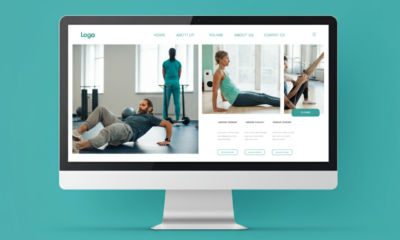
 HEALTH9 months ago
HEALTH9 months agoThe Ultimate Guide to Physical Therapy Web Design That Converts
-

 NEWS3 months ago
NEWS3 months agoTop 5 Reasons to Follow UKOBIW.com for Your Daily News Fix
-
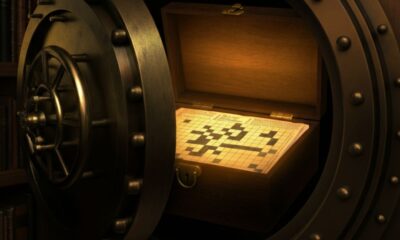
 CROSSWORD & PUZZLES5 months ago
CROSSWORD & PUZZLES5 months agoVault Opener NYT Crossword: An Informative Guide
-
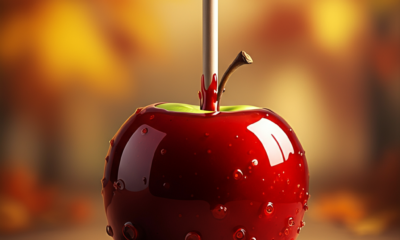
 HEALTH9 months ago
HEALTH9 months agoThe Allure of Candy Red: A Bold Hue That Never Goes Out of Style
